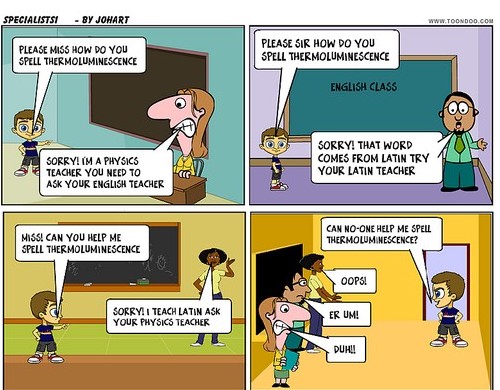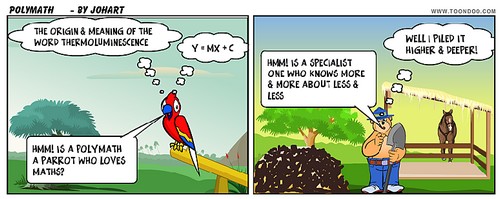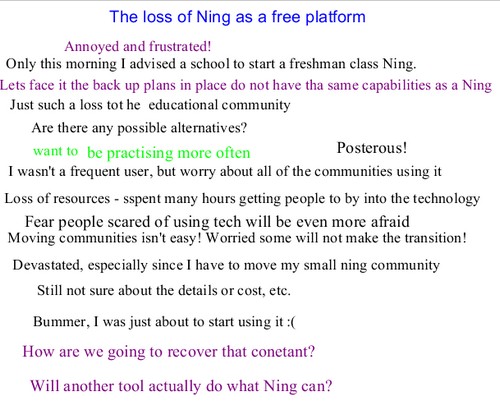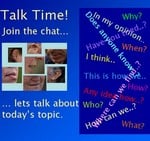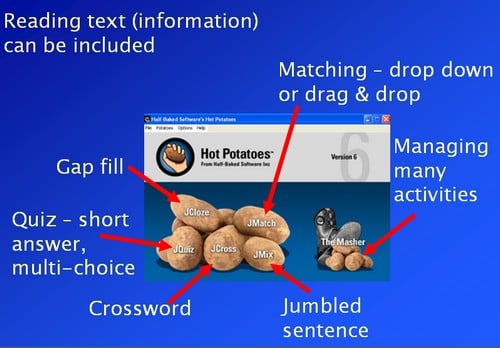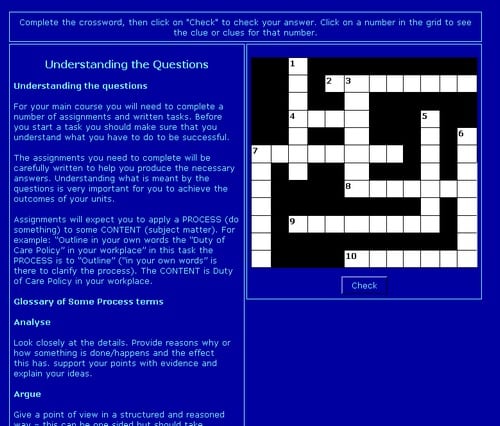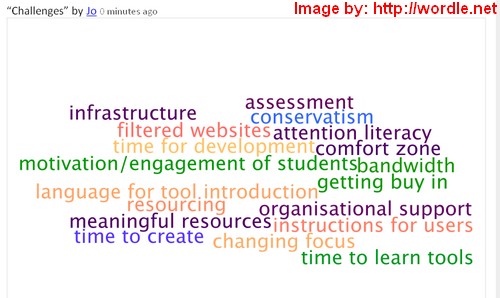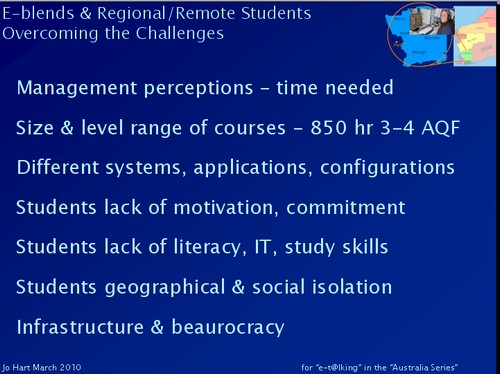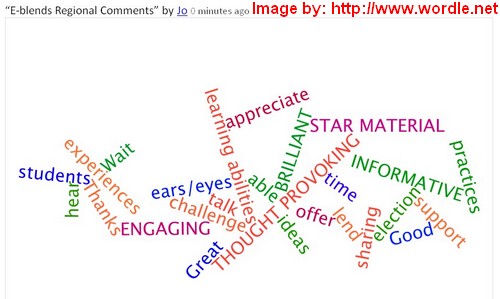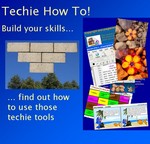Introduction
I was ruminating a couple of days ago about how learning, and teaching, have changed in so many ways since I was a scruffy kid at a small rural grammar (high) school in the UK over 40 years ago. Even subjects such as chemistry and biology were taught largely by “chalk and talk” and “read your textbook”. The occasional inclusion of “a film” was just that with a projector and a large reel of film. Even more rarely we migh have the opportunity to watch a BBC Schools programme on a grainy black and white screen as it was being broadcast.
Polymaths and specialists
Anyway enough of the reminiscence! What was really in my mind was how all of my teachers when I was young were definitely “specialists” they taught in their own (usually quite narrow) field, and were never asked questions or expected to know anything about anything else. I think I have had a “bee in my bonnet” about specialisation since those days. Even then I saw connections between subjects that others seemed unaware of and I found it intensely annoying that everything was compartmentalised.
It seems to me (and this is purely my own opinion) that for most of my life (until about the last 12 years) there has been a huge emphasis on specialisation. People have been encouraged for a long time to “know more and more about less and less” whether it be the works of a particular author who wrote two books or the lifestyle and physiology of a minute insect. I have always found this type of very narrow focus almost impossible for me as this degree of specialisation often seems to exclude the broader context in which the subject is set. It also (from my perspective) tends to diminish the opportunities for cross disciplinary input.
As one of those people with polymathic tendencies – and I am using polymath in its sense of varied (cross disciplinary) knowledge rather than in the sense of knowing a vast amount – I have often felt that I am labelled in a number of ways. Some of those labels that have been applied to me over the years are: “having a magpie mind” in the sense of remembering a lot of unimportant “glittery stuff”; “butterfly minded” ie flitting from subject to subject; “academic lightweight” with its implication that just because I have not chosen to “pile it higher and deeper” about one topic I therefore lack the capacity to do so!
My perception is that it is now more acceptable to be a polymath than it has been for many years. The ruminations that gave rise to this have also led me to wonder on the validity of this perception and consequently why this might be so. The first instant thought was that this is a result of the exponential growth of easily available information through Internet publishing and increased access. In my opinion the skills of a generalist and synthesist (often held by polymaths) are better suited to a burgeoning information situation than are those of a specialist. There is also the additional point that, with increased access to information, specialists are no longer the exclusive curators of detailed knowledge and information. Perhaps this is why (in my opinion) polymathy (and respect for it) is on the rise. However it may just be the usual cyclic nature of change – there have been other times when polymathy was common. Both the Renaissance period and the late 19th Century stand out in the number of polymaths who were high achievers in more than one field.
To Conclude
Finally, all I have written here is just “my take” I have no supporting evidence for any of these thoughts and opinions – just my own feeling from what I see around me and in my PLN. So my perception of a rise in polymathy is just that. As always, I would be most interested to hear your point of view.

